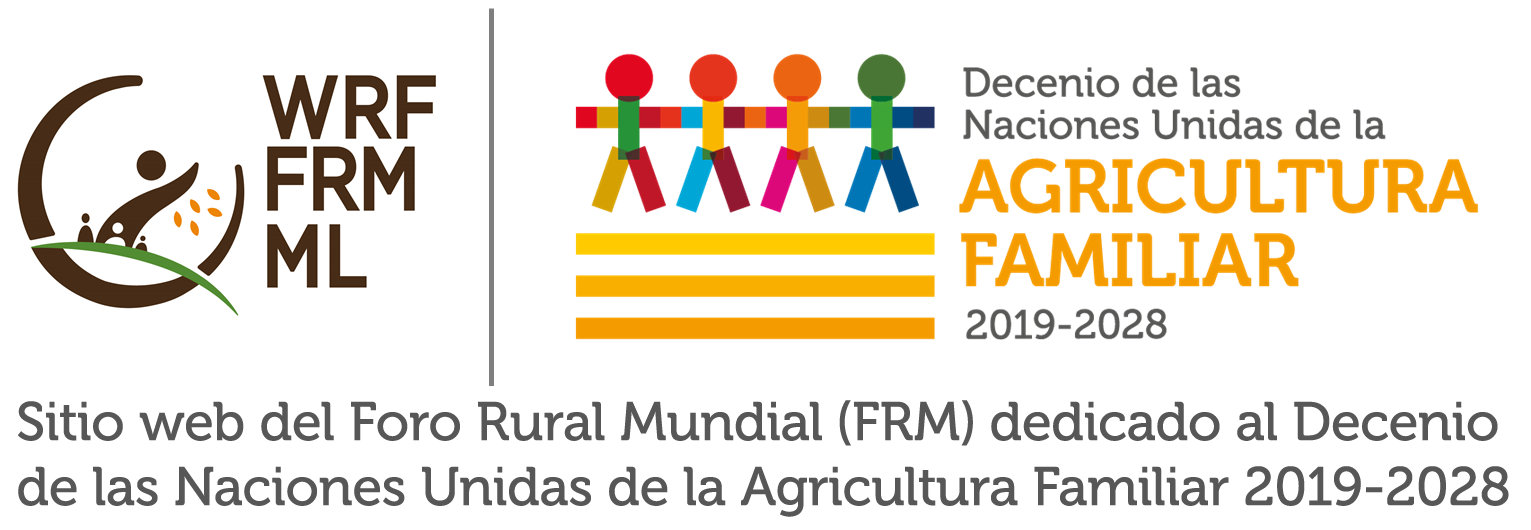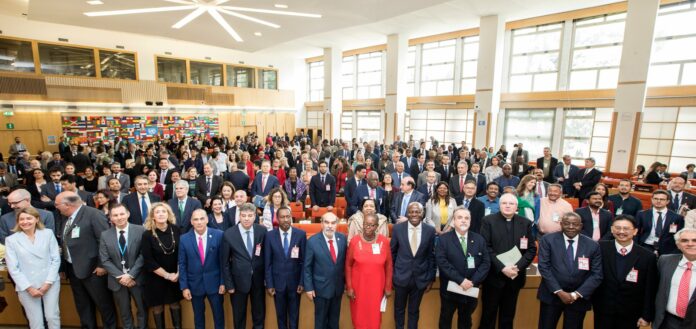In Latin America and the Caribbean a regional launch is scheduled for the end of August, while other regions are working for regional and national launches.
In Rome on 27, 28 and 29 May, 448 representatives from 113 countries took an active part in the official launch of the United Nations Decade of Family Farming (UNDFF) organized by FAO and IFAD. In addition to the formal launch which mark the starting point of 3650 days in favour of family farming, the meeting also launched the Global Action Plan for the UNDFF. The Plan provides a useful framework for mobilizing concrete and coordinated measures designed to guide the development of the UNDFF over the next ten years.
The Plan is divided into seven pillars which define the areas of action in which policies, programmes and regulations in support of family farming are to be developed. The pillars are: establishment of an enabling policy environment, generational sustainability, gender equity, strengthening family farmers’ organizations, improving the socio-economic inclusion, resilience and well-being of family farmers, promoting the sustainability of family farming in the face of climate change, and strengthening the multidimensionality of family farming.
The Plan includes a commitment to establish (and implement!) 100 National Action Plans for the UNDFF which are essential if the UNDFF is to reach the grass roots and produce a positive impact.
What are the UNDFF National Action Plans?
The National Action Plans are coordinated plans envisaging tangible steps and specific undertakings on family farming, particularly through public policies, programmes and regulations, and involving a road map for the countries and the regions in their effort to support sustainable development of family farming. They are intended to advance the implementation of the UNDFF at country level, converting the needs and priorities identified by the various stakeholders into actions, policies and change processes for the benefit of family farmers and their livelihoods.
Why are the National Action Plans for the UNDFF important?
The National Action Plans comprise practical mechanisms for advancing sustainable food production, creating rural development, fighting rural poverty, safeguarding biodiversity, maintaining culture, and thereby ensuring the future of sustainable food production for humanity from a holistic standpoint.
They are thus key tools for improving inclusive dialogue processes for constructing policies between various stakeholders, particularly governments, parliamentarians, international organizations, National Committees for Family Farming (NCFF), academia, research centres and development organizations.
The plans establish clear links with Agenda 2030 and will form part of the reports on the progress of the UNDFF in the UN General Assembly and in other future monitoring mechanisms.
How is a National Action Plan for the UNDFF constructed?
The Global Action Plan officially approved in Rome recommends that governments, public bodies and regional intergovernmental entities construct the national plans in an inclusive manner, involving family farmers (both women and men) and other important stakeholders, including the National Committees for Family Farming (NCFF).
The various stakeholders are recommended to establish a constructive and transparent dialogue in order to agree on the objectives to be achieved and the instruments necessary for that purpose; those agreements should be reflected in a National Action Plan for the UNDFF. It is recommended that the national plan be designed around some or all of the seven pillars of the UNDFF set out in the Global Action Plan.
The WRF urges the national offices of FAO and IFAD, the two organizations officially responsible for coordinating the UNDFF, to promote this inclusive dialogue on constructing the national plans.
Monitoring
Alongside national implementation, the UNDFF’s monitoring and reporting system is one of the keys to ensuring success. The ambitious aims of the UNDFF set out in the Global Action Plan need to be monitored, but so, too, do the development of the various policies and public investments and their impact on rural communities. When the biennial reports on UNDFF actions are being prepared, there must be a clear link with the Agenda 2030 Voluntary National Reviews, emphasising the fact – now widely acknowledged – that sustainable development will be achieved only if family farming is accorded the role it deserves, something for which the UNDFF undoubtedly provides a major opportunity.
Family Farmers’ Organizations and National Committees for Family Farming
The UNDFF will have to involve the various stakeholders, each with its own role but in permanent dialogue and cooperation. Family farmers’ organizations need to be strengthened so that they become a fundamental part of the process of constructing public policies, as emphasised throughout the VI Global Conference on Family Farming and as amply reflected in Pillar 4 of the Global Action Plan for the UNDFF. It is also essential to improve the services those organizations offer to their members in order to ensure that family farmers (both women and men) have access to the policies, plans, programmes and services.
Another key element for the success of the UNDFF will undoubtedly be the recognition and strengthening of the National Committees for Family Farming (mainly led by family farmers’ organizations) and of other forums for political dialogue on the preparation, monitoring and implementation of the National Plans for the UNDFF.


